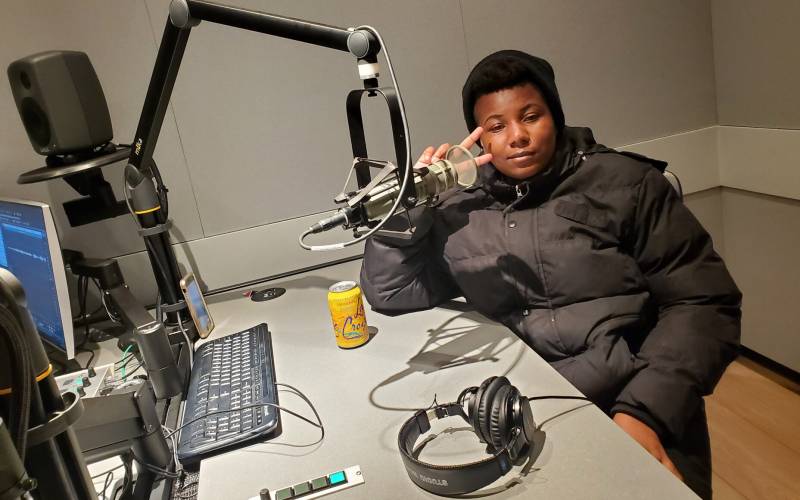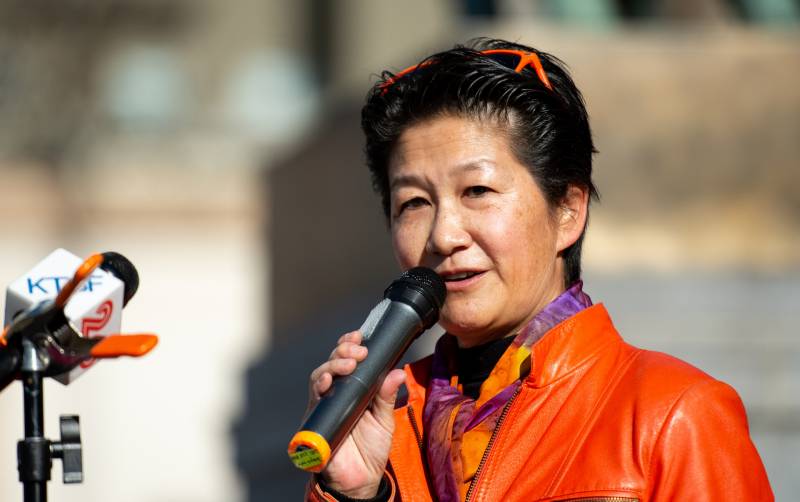Three teenagers who attend San Francisco Unified School District high schools spoke with KQED to share their reactions to Hsu’s comments. Uniformly, the teenagers felt her characterization of Black and Latinx families was simply untrue – especially when it comes to their own families.
What did Hsu say?
As part of a school board candidate survey Hsu filled out for a parent advocacy group ahead of the November 2022 election, she wrote that Black and brown families do not adequately support their children’s educations.
The statement came in response to a question about how she would improve outcomes among marginalized students in San Francisco. Hsu wrote:
“From my very limited exposure in the past four months to the challenges of educating marginalized students especially in the black and brown community, I see one of the biggest challenges as being the lack of family support for those students. Unstable family environments caused by housing and food insecurity along with lack of parental encouragement to focus on learning cause children to not be able to focus on or value learning. That makes teachers’ work harder because they have to take care of emotional and behavioral issues of students before they can teach them. That is not fair to the teachers.”
Hsu apologized for her comments on Twitter as soon as they surfaced publicly. At last week’s board meeting, she apologized in person and even voted alongside her colleagues for her own admonishment. More than a dozen organizations and city officials have called on Hsu to resign from office. A growing number of organizations and officials, including Mayor London Breed, have publicly said Hsu should remain in office and use the opportunity to grow and learn from her mistakes.
Students reflect on Hsu’s comments
The youth leaders we spoke with work with two organizations: the Chinese Progressive Association and Coleman Advocates for Children & Youth. Neither organization has taken a position on whether Hsu should resign, though Coleman Advocates has issued statements condemning the remarks. The organizations often take their cues from their youth leaders.
Each student expressed concerns that harmful stereotypes would influence Hsu’s decision-making on the San Francisco Board of Education, imperiling their peers through bad policies.
Selser Seth wanted to correct the record — Black families absolutely value learning. Her mother cares a lot about education, she says, and always pushes her for high grades.
Seth says she enjoys both music and science. She was a DJ spinning tracks for dancers at the Carnaval San Francisco festival in May, and she also shared a story of academic delight — when she recently got to dissect a pregnant shark.
“We had a scalpel, and we had a little tray, and just cut the stomach and cut the tissues,” she said. She enjoyed learning about the baby shark in a hands-on way, although, she admits, “it was pretty messy.”
Seth felt Hsu’s comments not only failed to describe other Black students, but made her feel she had less representation on the board.
Briseis Portillo, a 16-year-old Salvadoran American, felt the Latinx community was unjustly judged.
“It was kind of like a slap in the face,” she said.
Portillo says Hsu understands she was wrong, but it still caused harm.
“I think racism should not be tolerated at all,” she said.
Portillo said she met Hsu through Coleman Advocates about a week prior to her racist comments surfacing in the public. After they surfaced, students from Coleman Advocates have said they hope their current proposal to allow SFUSD public school students to vote on Board of Education proposals would counterbalance any policy choices Hsu made that would run afoul of Black and Latinx communities.


